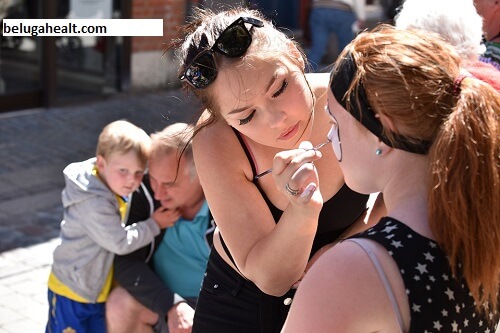Livingston County Community Mental Health through Diane Heinlein:
Livingston County Community Mental Health: Focus on Diane Heinlein
Introduction:
Mental health forms a salient aspect of overall well-being, including what it entails in terms of aspects to individuals, families, and communities. In Michigan, the community mental health services in Livingston County have significantly improved over time through some dedicated professionals, led by the likes of Diane Heinlein. Through dedicated efforts to make mental health more accessible and respected, Heinlein has played a crucial role in shaping the landscape of mental health services in the region.

This paper explores the community mental health framework in Livingston County, acknowledges the contribution of Diane Heinlein, and describes the overall challenges and initiatives facing mental health care. At the end, we will answer FAQs about community mental health services.
Overview of Community Mental Health in Livingston County:
Livingston County has various activities for the community. Mental health focuses on providing holistic care services to consumers who require treatment for their mental illness. These include prevention, treatment, and support in recovery, hence targeting the various needs of the community.
Elements of Community Mental Health Services:
- Access to Care: One of the key objectives of community mental is to ensure. That everyone has access to needed mental health care without regard to an individual’s economic status or other circumstances.
- Integrated Services: Most programs for Livingston County coordinate holistic service provisions within other service areas, including substance abuse and primary medical services.
- Crisis Intervention: Community resources for immediate crisis resolution support persons in crisis to work through trying moments and connect with long-term resources.
- Education and Awareness: Community programs promote education on mental issues, which reduces stigma and promotes mental wellness.
- Supportive Housing: Supportive housing programs provide stable living conditions, as well as access to mental health care, for those with serious mental challenges.
Diane Heinlein and Community Mental Health:
Diane Heinlein has been one of the most transformative figures in the community mental field in Livingston County. Practicing for decades, she continues to make indelible marks on the lives and families of those suffering from mental issues.
Professional Background:
She began her career in mental as a clinician and understood well the challenges associated with seeking treatment from such individuals. The clinical experience gave her insight into complex issues in mental treatment. Enabling her to transition into roles of leadership within the community.
Key Contributions:
- Program Development: Indeed, during her efforts to come up with and implement a variety of mental health programs. That will benefit the people of Livingston County, Diane has been very instrumental. An innovative approach has consequently led to the establishment of effective treatment modalities individualized to accommodate the community’s needs.
- Advocacy and Awareness: He has been a tireless advocate for mental awareness in Livingston County. She has initiated events, workshops, and outreach programs that have strived to educate the general public on all matters related to mental, hence reducing stigma as well as cultivating understanding.
- Working with Stakeholders: Having realized that mental care is needed at the community level, Diane has been a strong advocate and continues to collaborate with the communities, schools, and healthcare providers to ensure that residents have access to more holistic care.
- Focus on Prevention: Heinlein has thus focused on preventive care in mental. She, through her programs, emphasized mental wellness and resilience and thus helped to address issues before they become worse cases, therefore improving the community as a whole.
- Crisis Response Leadership: In the case of the coronavirus-induced pandemic, for example, Diane has taken on some leadership roles in mobilizing response activities toward mental. She has worked to ensure that anyone in crisis is provided with direct assistance forthwith available to them.
Current Programs:
By leaders such as Diane Heinlein, among others, the authorities in Livingston County have various programs aimed at outcomes around better mental health:
1. Crisis Intervention Teams (CIT):
CITs support law enforcement and emergency response agencies to recognize and respond appropriately to mental health-related crises. These teams ensure safer results for individuals in crisis by instructing first responders in de-escalation techniques and securing persons with appropriate services.

2. School-Based Mental Health Services:
Livestock production is considered the major economic activity in Livingston County, but because of the role mental interference has to play, mental health programs have been inserted in schools. Mental treatment services offer counseling and assistance to students, which helps them reduce issues of anxiety, depression, and bullying.
3. Telehealth Services:
This pandemic also intensified the use of telehealth, and people can now acquire mental care from the comfort of their living rooms. This has been such an innovation that has eased continuous accessibility to care during tough times, especially for those with mobility issues or facing transportation barriers.
4. Community Education Programs:
Various educational programs also enhance mental literacy in Livingston County. Workshops and seminars regarding stress management, coping strategies, and mental disorder understanding are provided to empower them with knowledge and resources.
5. Support Groups and Peer Programs:
Support groups are organized such that individuals have time to share their experiences and be assisted by those who have faced those problems. These groups help promote community ties and do not create feelings of isolation.
Community Mental Health Challenges:
Even though challenges persist in the community mental health area, significant ground has been gained in Livingston County:
1. Funding constraints:
Continued funding helps maintain and expand mental services. Budgets limit programs and resources that otherwise would be able to address a growing need in the community.
2. Stigma and Awareness:
Though the national campaign has, in fact, alleviated many stigmas, the majority of people still refuse to openly seek help and support because of this collective negative perception of the psyche in society. More education and much more are called for to bring the psyche more into the hearts and minds of society.
3. Access:
Although services have improved, access barriers remain, especially for the targeted populations. Inexperienced geographical distribution and lack of transportation might discourage some patients from achieving timely care.
4. Workforce Shortages:
The shortage of mental professionals far exceeds their supply. Recruitment and retention of qualified providers are crucial for ensuring that residents get the needed care.
The Future of Mental Health in Livingston County:
- Then comes the future of community mental health in Livingston County: more innovation, more collaboration, and more advocacy. Taking off from the foundations that leaders like Diane Heinlein laid down, there is a bright future for the following focus areas among stakeholders:
1. Funding and Resources:
Advocate for budget increases for mental services and programs to ensure that funding sources at the state and federal levels are increased.
2. Services Integration:
Care integration, where mental general physical, and substance use services will fall under one umbrella. This would likely have more integrative solutions and better results for the individuals.
3. Preventive and Early Intervention Activities:
Preventive programs combined with early intervention strategies may meaningfully reduce the prevalence of severe mental conditions and enhance general community resilience.
4. Building Community Relationships:
Ensured Further Collaboration is Needed:
Continued interaction between local organizations, care providers, and educational institutions ensures that the appropriate development and implementation of a coordinated response to mental care occurs.
Frequently Asked Questions:
1. What are the services for mental health support within the Livingston County area?
Services offered in the Livingston County area include crisis intervention, counseling, groups, school-based mental programming, and telehealth.
2. How Can I Obtain Mental Health Services in Livingston County?
Services are available through direct contact with the Livingston County Community Mental organization or even at local centers. Most of the programs accept referrals and also self-referrals.
3. What is the importance of Diane Heinlein in community mental health?
Diane Heinlein has played a significant role in shaping the mental services in Livingston County. She had been advocating for mental awareness and had been working together with others to enhance the services.
4. Is there support for the families of the mentally ill?
Yes, through its programs, Livingston County has support groups and educational programs intended for the family about mental illness along with practical tools to assist loved ones.
5. What can I do in my community to reduce the stigma around mental health?
Education can lower stigma through public awareness strategies, opening up and sharing your experiences when you feel safe in doing so, and participating in events around and in your community that offer education on mental health.
6. What should I do in a mental health crisis?
If you or someone you know is having a mental crisis, please get help immediately. Or if you can safely get to one, go to the nearest emergency room.
7. How can one become an advocate for mental health issues in Livingston County?
One may become involved through attending community meetings, volunteering with local mental organizations, and participating in campaigns to raise awareness about education regarding mental.
Conclusion:
Community mental in Livingston County has greatly improved because of the efforts and leadership of people like Diane Heinlein. The county has built a robust framework for mental, focusing on accessibility, integrated services, and public awareness.

Given these details, although the hurdles are imposing, the promise to push the improvement of mental services and well-being will lead the way toward a healthier life for the county’s residents. The facility will continue to advocate, educate, and collaborate since Livingston County aims to ensure that mental care is accessible and effective for all its people.